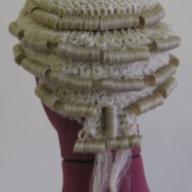Guilty or not guilty?
2011-07-20 11:32 pm
If a child under 10 takes property belonging to another, this does not constitute the offence of theft. Therefore the property so taken is not "stolen". A person then receives the property from the child. Does that person commit an offence of handling stolen goods under the Theft Ordinance?
回答 (2)
2011-07-21 1:43 am
✔ 最佳答案
The way that a child can obtain properties are quite limited, (i) their immediate parents, or guardian, can buy properties for the children; (ii) the children inheritage the properties, for example, by Will or law of intestacy or Deed of gift; (iii) steal goods and/or properties from others.A child has no capacity to sell properties, they can only legally sell their properties by the age of 18. The properties are legally hold by their immediate parents or guardian or trustee.
A person handle an illegally obtained properties from someone else does not constitute as theft, since that the one who bought the properties from that child fall into the victim categories, nor that will make anyone else become "handling stolen goods", and the original owner has lost the properties suffer lost which might be non-recoverable. The only theft was therefore the child.
The problem become worst as that children under the age of 10 cannot be guilty of crime, this will make the child acquit from the crime, also, a trial cannot be heard as the court believe they are incapable of understanding what they are doing. I think the age level should be change and further test to investigate the child be made. Since that, children has became more mature than before.
Further problem happen when a person had deliberately misconceive someone else to sell the properties and quickly sold it to a third parties. Who should be the real owner of the lost properties? The original owner or the new owner? If this will be tried at court, it is the matter for court to decide.
2011-07-21 4:28 pm
my friend mr. a7day has already answered you so i will not post an answer. i would instead supplement his answer here. by law (cap. 226 s.3) "a child under the age of 10 cannot be guilty of an offence." but it does not mean that he has not committed an offence.
2011-07-21 08:28:50 補充:
he could commit an offence, just not be guilty of it. so when you said "the property taken is not stolen" is incorrect. the crime of theft has taken place and the property was indeed stolen. but the court cannot judge the child to be guilty of that crime.
2011-07-21 08:33:18 補充:
cap. 210 s. 24 in brief states that anyone handling stolen goods knowingly is guilty of an offence. this law is not age-specific. anyone of any age handles stolen goods from anyone of any age is committing an offence.
2011-07-21 08:33:47 補充:
therefore a person who handles stolen property from a child of under 10 is still committing an offence.
2011-07-21 08:28:50 補充:
he could commit an offence, just not be guilty of it. so when you said "the property taken is not stolen" is incorrect. the crime of theft has taken place and the property was indeed stolen. but the court cannot judge the child to be guilty of that crime.
2011-07-21 08:33:18 補充:
cap. 210 s. 24 in brief states that anyone handling stolen goods knowingly is guilty of an offence. this law is not age-specific. anyone of any age handles stolen goods from anyone of any age is committing an offence.
2011-07-21 08:33:47 補充:
therefore a person who handles stolen property from a child of under 10 is still committing an offence.
收錄日期: 2021-04-23 22:17:00
原文連結 [永久失效]:
https://hk.answers.yahoo.com/question/index?qid=20110720000051KK00686


